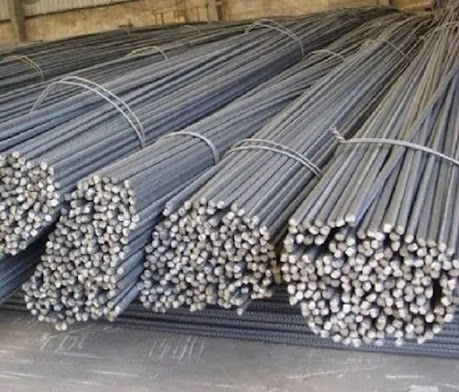As the construction
industry gravitates to prioritize sustainability, the choice of building
materials plays a crucial role in minimizing environmental impact.
Thermo-Mechanically Treated (TMT) steel has emerged as a viable option that
offers both structural integrity and sustainability advantages.
Here, we’ll try to explore
the benefits of using TMT Sarias in Panipat in sustainable construction and examine its environmental
implications, highlighting how it contributes to a greener and more
eco-friendly building industry.
TMT Steel in Sustainable Construction:
Benefits and Environmental Implications
Let us try to understand
how TMT steel proves to be a green solution for sustainable construction
practices.
- Enhanced Resource Efficiency
TMT steel promotes
resource efficiency throughout its lifecycle. The manufacturing process of TMT
steel offered by the Top500 Grade TMT Saria Supplier in Panipat utilizes recycled scrap steel,
reducing the need for primary raw materials and conserving natural resources.
Additionally, TMT steel's high strength allows for the use of smaller sections,
resulting in reduced steel consumption compared to conventional steel. This
translates to lower energy requirements during manufacturing and
transportation, ultimately contributing to a significant reduction in carbon
emissions. By optimizing material use and minimizing waste, TMT steel supports
sustainable construction practices and helps conserve valuable resources.
One of the key
sustainability benefits of TMT Sarias in Panipat is its exceptional longevity and durability. TMT steel's
unique manufacturing process imparts superlative durability and corrosion
resistance, ensuring longer service life for structures. This reduces the need
for frequent repairs, renovations, and replacements, resulting in significant
cost and resource savings over time. Moreover, the durability of TMT steel from
Shri Rathi Group - Top500 Grade TMT Saria Supplier in Panipat minimizes the environmental impact
associated with the disposal of construction waste. By choosing 7 STAR TMT
steel, builders contribute to a more sustainable built environment by
constructing long-lasting structures that require fewer material inputs and
generate less waste.
TMT steel's excellent
strength-to-weight ratio makes it an energy-efficient choice for construction
projects. Its high strength allows for the design of lighter structures, which
require fewer materials and less energy during construction. The reduced weight
also translates to lower transportation energy, as less fuel is needed for
shipping and handling. Furthermore, TMT steel's thermal properties contribute
to energy-efficient buildings. It helps regulate temperature fluctuations,
reducing the need for excessive heating or cooling and thus decreasing energy consumption.
By utilizing TMT steel, sustainable construction practices are enhanced through
improved energy efficiency, resulting in reduced carbon emissions and lower
environmental impact.
- Recycling and Circular Economy
TMT Sarias in Panipat are highly recyclable,
making them excellent contributors to the circular economy. At the end of a
building's lifecycle, TMT steel can be easily separated from concrete and other
materials and recycled for reuse in new construction projects. Recycling TMT
steel significantly reduces the demand for virgin steel production and
associated carbon emissions. Moreover, as TMT steel retains its strength and
properties even after recycling, the recycled steel maintains its high-quality
performance. This closed-loop recycling process not only minimizes waste but
also helps conserve energy and natural resources, making TMT steel a
sustainable choice for the construction industry.
TMT Steel: A Sustainable
Building Material for a Brighter Future
Shri Rathi Group TMT
steel's sustainability benefits, including enhanced resource efficiency,
longevity and durability, energy efficiency, and recyclability, position it as
a key player in sustainable construction. By choosing TMT steel from the Top 500 Grade TMT Saria Supplier in
Panipat, builders
and industry professionals contribute to a greener future by creating
environmentally responsible structures that stand the test of time.
Incorporating TMT steel
into sustainable construction practices is a significant step towards reducing
the environmental footprint of the building industry. By optimizing resource
usage, promoting durability, improving energy efficiency, and embracing
recycling and the circular economy, TMT steel contributes to a more sustainable
built environment. You can visit https://www.shrirathigroup.com/7star-fe-500d-tmt-bars-manufacturer-in-panipat/c to learn more about the
technology and process at 7 STAR Shri Rathi Group.
.jpeg)
.jpeg)


.jpeg)



